
The RCA Type KU-2A
uni-directional microphone
MI-3043-B with Three Prong Plug
MI-3043-C with Six Prong Plug
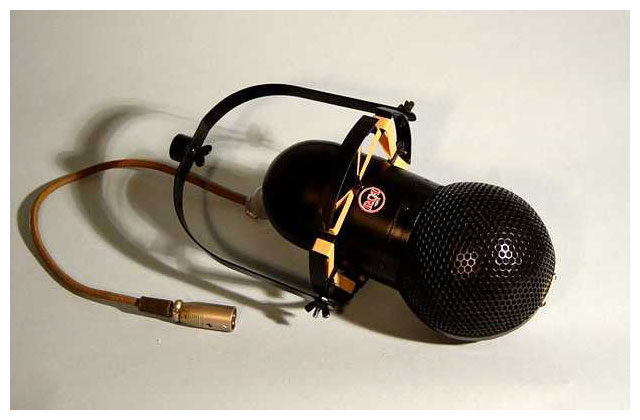
Description
The MI-3043-B (and -C) Uni-Directional microphone consists of two ribbon type microphone units suspended in a common air gap. One of the units is open to sound waves both in front and back and operates on the pressure gradient principle. It is known as a velocity microphone. The other unit has a tube connecting with a damped acoustical labyrinth, sealed to the back side of the air gap, and responds to pressure variations in the sound wave. It is known as a pressure microphone. The outputs of the two microphones are connected in series and the vector addition of the voltages generated by the two microphones produces a directional characteristic as shown in Figure 3. The MI-3043-B and MI-3043-C are identical except for the difference in the connector plugs as stated in the title.
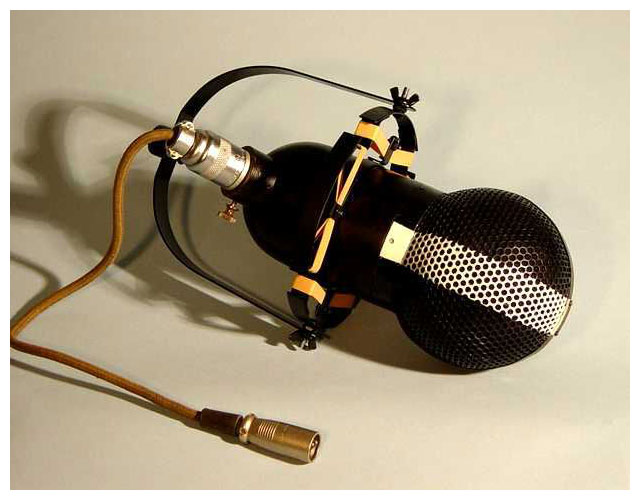
The ribbon and magnet assembly is enclosed in a perforated housing. The housing provides protection against dust and mechanical injury, and, to a certain extent, reduces wind noises. The acoustical labyrinth (or folded tube) associated with the pressure microphone section is contained in the cylindrical center part of the microphone. The impedance matching transformer and a compensating network is mounted in the hemispherical shell at the end of the microphone.
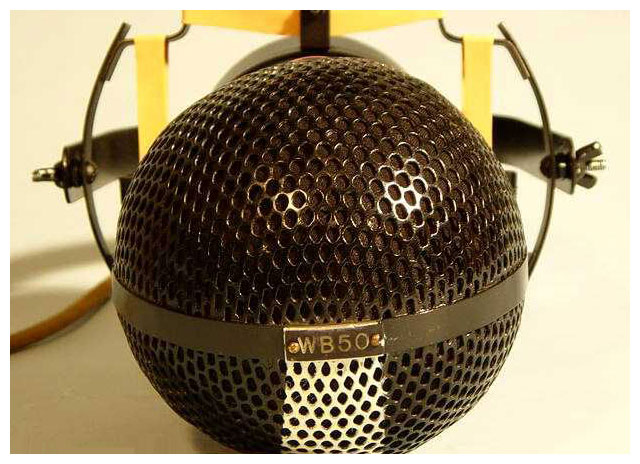
Sensitivity
The sensitivity of these microphones is of the same order as that of other quality microphones used in sound film recording. By connecting the microphone output for twice the impedance for which the amplifier input was designed, the microphone output level may be raised by 3 db.

Directional characteristics
These microphones have a very uniform response on the front side with the sensitivity decreasing slowly as the angle of the sound source with the maximum response axis increases (See Figure 3). Minimum response is at the rear of the microphone where the attenuation relative to the sounds along the maximum response axis is 14-20 dB. The axis of maximum response is on a line passing through the center of the ribbon and perpendicular to the plane of the ribbon.
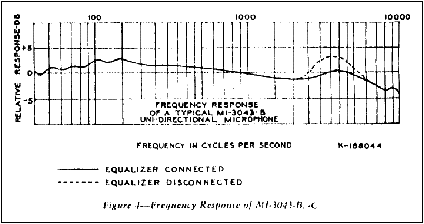
Response
The Uni-Directional microphone has practically uniform frequency response within its operating range. (See Figure 4.) When the microphone is located less than two feet from the source of sound, the low frequency response is increased somewhat although not to the same extent as with a velocity microphone. For sound sources more than three feet from the microphone this effect is negligible. The frequency response is not appreciably affected by changes in the angle of incident sound over an angle of 75 degrees each side of the axis of maximum response on the front of the microphone. An increase in high frequency response may be obtained by disconnecting the high frequency equalizer (See Figure 4).
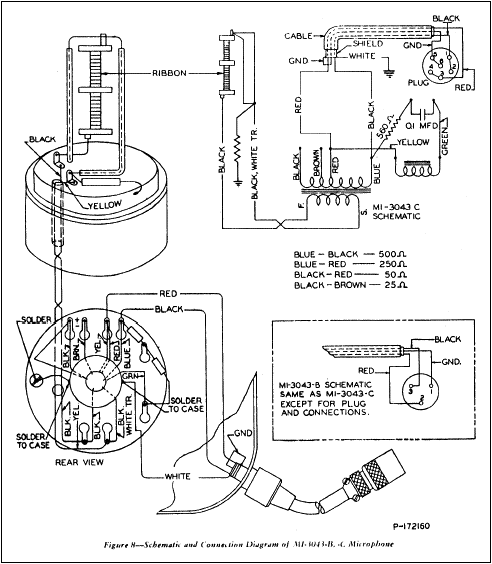
Connections
The MI-3043-C microphone is provided with a six contact connector plug using two contacts in multiple for each of three connections. (Refer to the schematic diagram, Figure 8.) The MI-3043-B is provided with a three-contact connector plug. Connections are shown in Fig. 8.
Portions copied from RCA Publication No. 1B-37007-2,
Uni-Directional Microphone, MI-3043-B, MI-3043-C
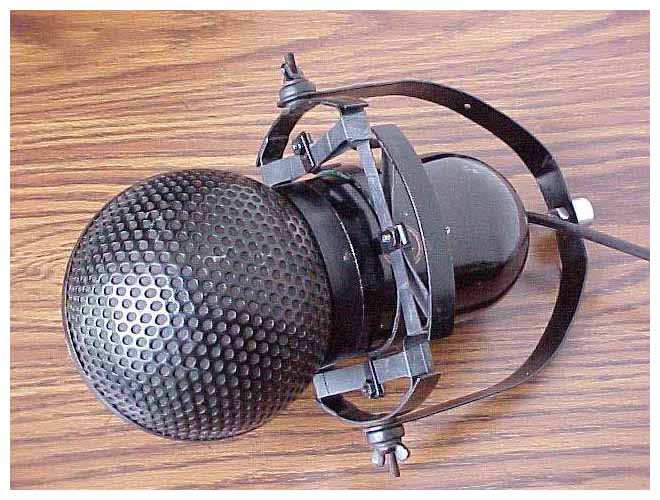
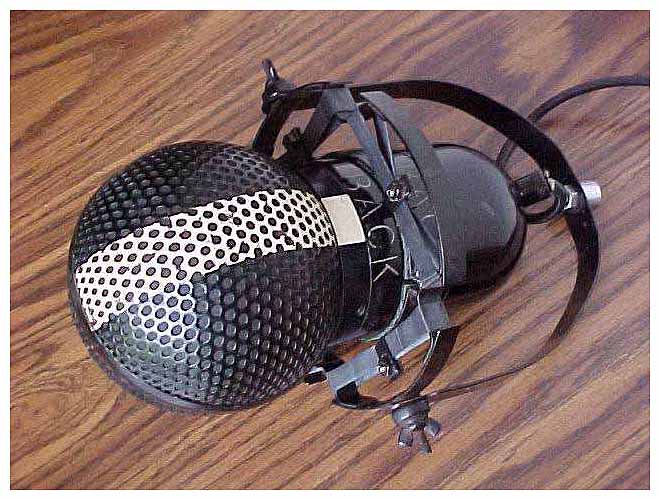
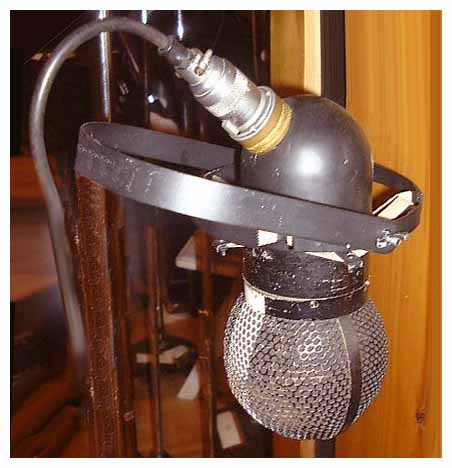
The mic seen in the top three photos, S/N 1062, went for $3,600 on eBay on August 5, 2004.
This mic’s unofficial nickname is “the skunk.”